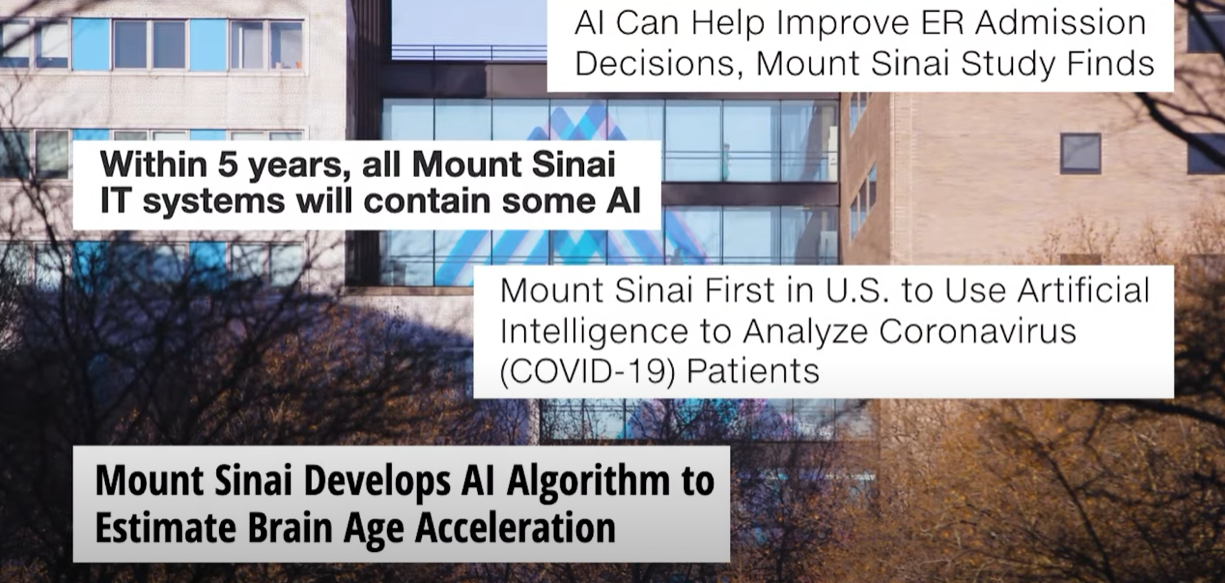Mount Sinai is transforming medical education by integrating ChatGPT Edu across its programs, arming future doctors and researchers with the AI skills and ethical grounding they’ll need to lead in tomorrow’s healthcare world.

In a national first for a medical school, the Icahn School of Medicine at Mount Sinai is providing all medical and graduate students, along with select faculty and staff members, access to OpenAI's ChatGPT Edu private and secure platform. The move reflects Mount Sinai's commitment to pursuing innovative approaches to education and research through collaborative learning and scholarly inquiry.
The launch follows a formal agreement between Mount Sinai and OpenAI that safeguards personal health, student, and other sensitive information while delivering secure, accessible, and advanced artificial intelligence (AI) to the Icahn Mount Sinai scholarly community. Through this collaboration, the School enhances its educational toolkit to equip the next generation of physicians and scientists with a cutting-edge solution to succeed in the rapidly evolving health care and science ecosystem.
This latest development further enhances Mount Sinai's research and learning environment. Students benefit from access to the vast, diverse data generated by a major New York City health system and its research enterprise. This access, combined with advanced technology, provides students a powerful academic advantage and fosters innovative research opportunities.
"At Mount Sinai, we believe it's our responsibility not just to adopt emerging technologies, but to do so with care, purpose, and a strong commitment to equity and academic integrity," said David C. Thomas, MD, MHPE, Dean for Medical Education at the Icahn School of Medicine at Mount Sinai. "With robust safeguards in place-including full HIPAA compliance and integrated protections to support safe and appropriate use-our deployment of ChatGPT Edu gives our students the opportunity to engage critically with generative AI. It's about helping them build the judgment, skills, and ethical grounding they'll need to lead in a future where AI will increasingly intersect with medicine."
Students are trained to use the platform to complement evidence-based practices, expert guidance, and patient-centered care, not as a replacement. ChatGPT Edu is being used across various educational settings, from helping students strengthen clinical reasoning and understand complex cases to supporting research through data analysis and coding assistance. The platform does not provide medical care or make decisions, but serves as a dynamic learning aid, similar to a digital study partner, with built-in safeguards to ensure responsible and compliant use. Faculty members are also exploring its potential to enhance curriculum development, scholarly work, and innovation in teaching.
"Every student today, regardless of discipline, needs to know how to use AI effectively before entering an increasingly AI-powered workforce. In medical schools, teaching students how to use AI responsibly is even more critical. The Icahn School of Medicine at Mount Sinai is setting a powerful example, and we are delighted to work together to deploy ChatGPT Edu to all medical and graduate students," said Leah Belsky, Vice President and General Manager of Education at OpenAI.
The Hamilton and Amabel James Center for Artificial Intelligence and Human Health
The initiative is guided by the Steering Committee on Teaching, Learning, and Discoveries at the Icahn School of Medicine at Mount Sinai and supported by the Research and Technologies Team. The Gustave L. and Janet W. Levy Library team is leading core training opportunities on responsible and innovative use of AI.
Examples of specific use cases include:
- Assist with writing programming code, configuring infrastructure, and troubleshooting technical issues
- Use Python code libraries to perform advanced data analysis and extract insights
- Help brainstorm innovative research ideas or refine proposals
- Assist in streamlining content creation that supports active learning, e.g., study guides, interactive scenarios
"Our first goal is to ensure a seamless rollout to our medical students, as well as our students at the Graduate School of Biomedical Sciences at the Icahn School of Medicine at Mount Sinai. In the next several months, we will be focusing on evaluating the student experience and how the tool supports curricular success," says Paul Lawrence, Dean for Scholarly and Research Technologies at the Icahn School of Medicine at Mount Sinai. "Over time, we hope to expand advanced AI access to a variety of learning and teaching cohorts through the Mount Sinai Health System."
"This technology isn't here to replace clinical judgment-it's here to support it," says Dennis S. Charney, MD, Anne and Joel Ehrenkranz Dean at the Icahn School of Medicine at Mount Sinai and President for Academic Affairs of the Mount Sinai Health System. "Students aren't using AI to make medical decisions, but to sharpen their thinking, challenge their assumptions, and become more confident, critical thinkers. Tools like this can enhance how students learn and problem-solve, but they will never replace human instincts and relationships at the heart of medicine. Our goal is to teach future clinicians and researchers how to work thoughtfully with technology-bringing the best of both worlds together to improve care and advance discovery."
The ChatGPT Edu rollout builds on other major recent Mount Sinai AI initiatives, including the launch of its new AI building, the Center for Artificial Intelligence in Children's Health, and the recent announcement of the AI Small Molecule Drug Discovery Center.